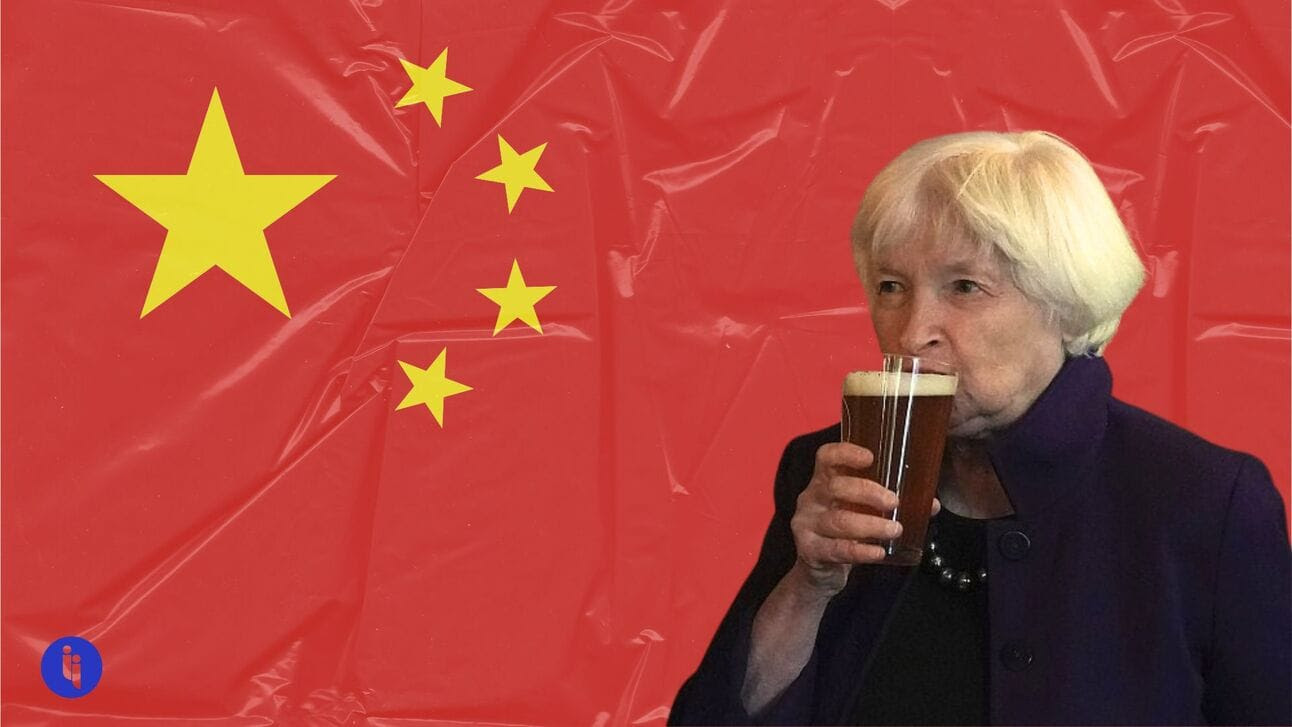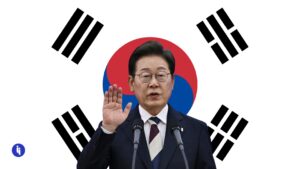US Treasury Secretary Janet Yellen just wrapped her six-day trip to China after meeting top Chinese officials and US business leaders on the ground there. It’s her second visit to China in less than a year, as part of Washington’s push to keep lines of communication open with Beijing.
Here are five key quotes from the treasury secretary’s visit you should know:
- “China is now simply too large for the rest of the world to absorb this enormous capacity”
China’s ‘overcapacity’ has long been a worry for Yellen, and she raised it with both Premier Li Qiang and Vice Premier He Lifeng. Her basic argument is that China’s massive state support enables – indeed, encourages – China’s firms to make more products than are needed, and then sell them at artificially low prices.
Stay on top of your world from inside your inbox.
Subscribe for free today and receive way much more insights.
Trusted by 129,000+ subscribers
No spam. No noise. Unsubscribe any time.
The resulting excess production gets offloaded onto global markets, replacing other firms (and jobs) in the process. It happened with steel a decade ago, and Yellen worries it could happen again with EVs, batteries, solar panels, and chips.
For its part, China actually acknowledged its overcapacity in December, though it’s pushed back on Yellen this week. Its argument is essentially that a) overcapacity is a natural part of the business cycle; b) the US is just snowflaking because it can’t compete; and c) the US is showing double standards by boosting its own industry support through moves like the Inflation Reduction Act.
- “Our concern about overcapacity is not animated by anti-China sentiment or a desire to decouple”
This was a consistent theme for Yellen, though her hosts will have had one eye on other recent US comments that probably came across less conciliatory.
In rejecting claims of anti-China sentiment, Yellen also argues that addressing China’s overcapacity is simply “good for China’s long-term productivity and growth”. Yellen is basically implying here that an economic model built on overcapacity (first in property, now shifting to industry) really isn’t sustainable.
- “The work of diplomacy is not easy”
Okay, it’s not the spiciest line, but Yellen did have a tricky gig: to strike a tone tough enough to signal that the US means business, but not so uncompromising that it derails Washington’s broader efforts to stabilise US-China ties.
So the interesting thing about this line is really the fact that it’s coming from the treasury secretary herself, who’s become a key player in US diplomacy towards China. This is partly because Yellen is pretty highly regarded in China, where she’s treated more as a wise scholar than an ideological warrior.
- “Companies, including those in China, must not provide material support for Russia’s war”
China’s relative regard for Yellen means she can probably also get away with dropping these kinds of tougher lines, going on to warn that any companies aiding Russia’s war machine will be hit with US sanctions.
The US, EU, and UK have already blacklisted Chinese firms for breaching Western sanctions against Russia. And Yellen’s latest comments came just as reports emerged that Beijing is now providing Moscow with satellite imagery, chips, and machine tools for military use.
- “As we proceed, we must remember that its trajectory is not predestined”
The ‘it’ here is the US-China relationship, with Yellen going on to say that its future “depends on the choices that each of our countries make”. As obvious as that may sound, history is littered with nations sleepwalking into catastrophe, with individual characters and egos often making all the difference in retrospect.
So as US-China ties continue to wobble on, it’s a point that still bears repeating.
INTRIGUE’S TAKE
The big topic of Yellen’s trip was really ‘overcapacity’, and it’s a doozy. There are reasons some may welcome another flood of low-cost goods from China. For a start, many of those goods will be key to the world’s energy transition, just like they were once key to, say, lifting the world’s living standards.
Plus, for the majority of countries not making EVs, batteries, or solar panels… cheaper is presumably better. Those countries – like the environment – don’t really care whether these things are made in Shenzhen or San Diego.
As for China, addressing its overcapacity means shifting support from industry to households. And that means decentralising money, which means decentralising power. But President Xi has long devoted himself to pursuing the opposite.
And yet abroad, China’s resulting dominance in more key sectors will keep spooking key players like the US and the EU, who’ll keep pushing back on China in new ways, while guarding key supply chains, industries, and workforces.
So that means Xi’s choice here is arguably between more risks at home, or more risks abroad. He’s shown some tactical flexibility in recent months, but when push comes to shove, he’ll do what it takes to avoid trouble at home.
Also worth noting:
- Rhodium published a study last week finding that China’s silicon wafer capacity has recently dropped from 78% to 57%. Anything less than 75% for a sustained period is typically regarded as evidence of overcapacity.
- Bloomberg also published data last week suggesting overcapacity is only an issue in certain sectors of China’s economy, like solar and batteries.
- Local media outlets have been particularly interested in documenting Yellen’s culinary endeavours in China, given her last trip involved inadvertently eating hallucinogenic mushrooms.







